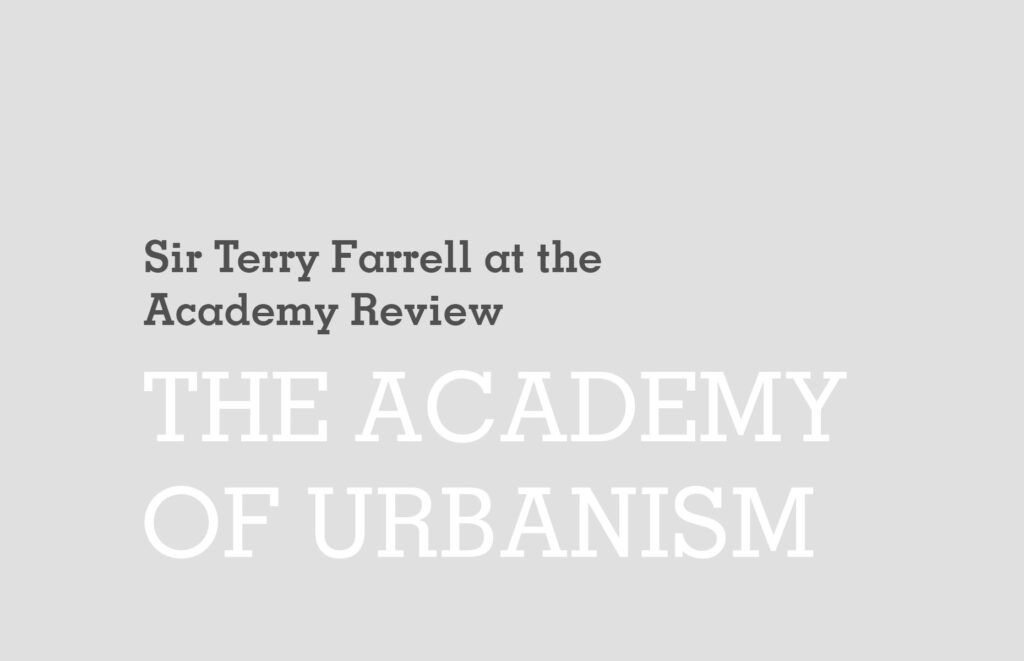
This article was originally posted on The Academy of Urbanism website.
The Academy was delighted to welcome Sir Terry Farrell to the Mid-Year Review and Reception, hosted in London on 23 July by Alan Baxter Associates. Sir Terry joined the event to provide an update on his recent review of the built environment.
Informed by several expert insights, the Review calls for a more proactive approach to reforming the built environment. The report identified the current practice of developer-led, funding-led design to be reactive and largely uninspired; hence the renaming of ‘planning’ to become ‘development management’. The report encourages architects and urban designers to act with conviction; identify pain points in their surroundings, question their relevance, and find inventive ways to help create improvements. Using examples from his own experiences, Sir Terry discussed the problems of ‘solutioneering’ and offered templates of good practice. He also advocated for the creation of ‘Urban Rooms’- or settings where politicians and the public can gain urban and spatial literacy. Without being aware of the dynamics that form the city around us, we will lack the capacity to truly improve.
A lively discussion was incited in the Q&A session that followed. It seemed that there was a consensus across the wide range of Academicians that in order to reform the system of planning in the built environment in the UK, practitioners must begin to proactively question their engrained assumptions by finding new ways to learn. This includes ‘unlearning,’ and engaging in a more open and active involvement with community groups and interested stakeholders. It was agreed that there is a further need to advocate for more urban education on the side of local government and the general public, including incorporating lessons into school curriculum to prepare for a better urban future. Through the several anecdotes, caveats, and ideas shared among the Academicians, it was clear that productive urban design will most likely be embraced if it is informed by inquisition from all parties. If the goal of the Farrell Review was to incite a conversation on how urbanists might re-think their practice, then the discussion at the AoU Midyear Review certainly proved its success.
